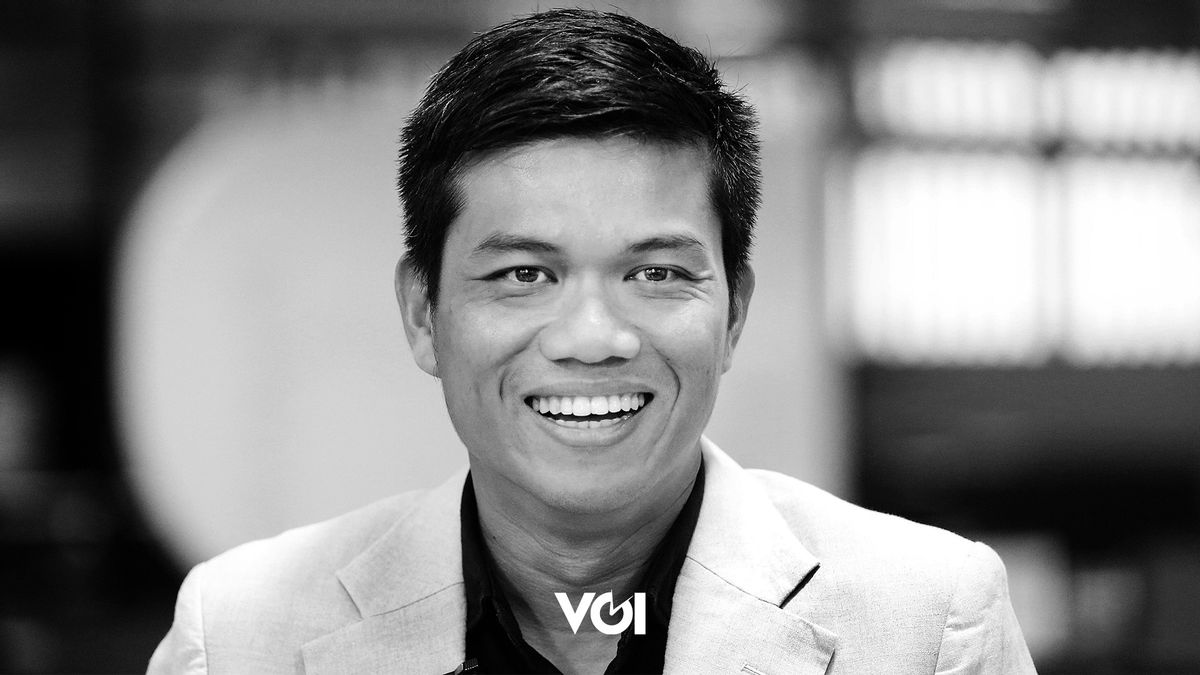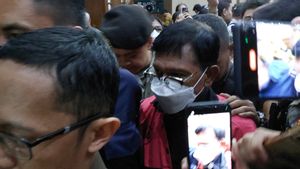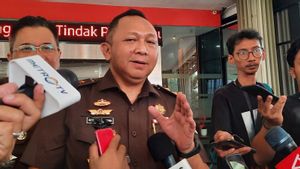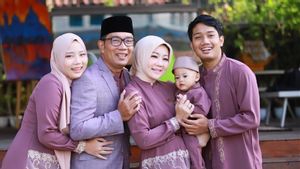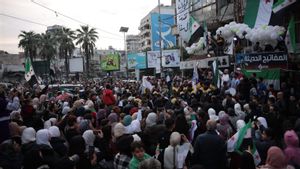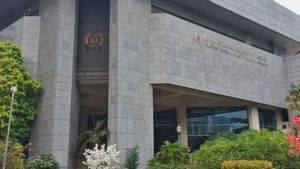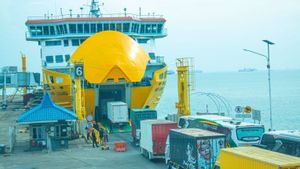Regarding internet speed, Indonesia is still at the lowest level in the Southeast Asian region. The general chairman of the Association of Indonesian Internet Service Providers (APJII), Muhammad Arif Angga, does not deny this reality. This condition is influenced by many factors, including the area and population. These two variables make Indonesia's internet speed index figure in a low position. Therefore, comparing Indonesia with Singapore, for example, according to him, is not really apple to apple.
***
Menurut data yang dipublikasikan oleh Ookla soal Speedtest Global Index (indeks tes kecepatan internet dunia) yang dilansir pada Februari 2023 lalu, ranking kecepatan internet Indonesia sedikit mengalami kenaikan, namun masih tetap tertinggal dibandingkan negara lain di Asia Tenggara lainnya, baik untuk kategori mobile internet dan fixed broadband.
According to data published by Ookla on the Speedtest Global Index (world internet speed test index) which was launched in February 2023, Indonesia's internet speed ranking has increased slightly, but is still lagging behind other countries in Southeast Asia, both for the mobile internet and fixed broadband category.
Mobile internet speed in Indonesia, at 20.17 Mbps, is in 103rd position out of 137 countries in the world. For the mobile internet category in Southeast Asia, Indonesia is at the bottom with 20.17 Mbps. Above Indonesia there is the Philippines with 24.58 Mbps (80th in the world) and Cambodia with 21.09 Mbps (96th in the world). While the top position is held by Brunei with 85.15 Mbps (16th in the world) and Singapore with 75.17 Mbps (22nd in the world).
As for fixed broadband internet speed, in Southeast Asia, Singapore won 237.15 Mbps (world rank 1) and Thailand 203.28 Mbps (world rank 6). Indonesia for this sector is not in the bottom position held by Myanmar at 19.68 Mbps (133th in the world). Indonesia's position is slightly better, being in 8th place with a speed of 26.38 Mbps (120th in the world).
According to Muhammad Arif Angga, factors such as area size and population make Indonesia's figures low in terms of internet speed. "Indonesia has a very wide area, other countries in Southeast Asia are not as large as Indonesia. In addition, our population is also the highest. So the dividend is large, because of that the number will be small. If the data is in certain areas, for example Jabodetabek, I'm sure the numbers will be good," he said.
"In general, our internet speed is the worst at 10 to 20 Mbps. But this is the basic broadband service for homes at this time. In big cities like Jakarta, it is already faster, it can reach 100 Mbps. So we can compete with other countries. another for certain areas," he told Iqbal Irsyad, Edy Suherli, Savic Rabos, and Irfan Medianto when visiting the VOI Media office, at Tanah Abang III, Central Jakarta recently. Here is the excerpt.

Regarding data leakage, according to APJII chairman Muhammad Arif Angga, it is everyone's responsibility, it cannot only be borne by one party. (Photo: Savic Rabos, DI: Raga VOI)
As a professional organization, what is APJII's vision and mission?
Our association has been around for a long time, we are 27 years old. So it has been around since the Ministry of Communication and Informatics was not born. At that time it was still under the auspices of the Menparpostel. Indeed, our association is very specific. We oversee companies that have internet service provider licenses from the Ministry of Communication and Information. Currently, our members are 940 companies spread throughout Indonesia. All of them have ISP permits from the Ministry of Communication and Information. This number is considered fantastic, in other countries no one has hundreds of ISPs. Usually only 3, 4, or 5, on average less than 10 in each country.
Our mission is to fight for the interests of members. We also manage IP Address numbering. Our predecessors have pioneered this IP address numbering as a mandate from the Ministry of Communication and Information. APJII is authorized to issue that address. This IP Address can be applied by companies, not individuals. Besides the 940 companies, there are also 2,600 companies that subscribe to IP addresses for various purposes. APJII which has the right to manage this IP address in Indonesia at this time.
Why can there be so many IP addresses in Indonesia?
This is because the permit was indeed opened and secondly because of Indonesia's vast geographical conditions.
What are the other duties and powers of APJII?
We manage the Indonesia Internet Exchange (IIE), this is a hub or terminal for the internet throughout Indonesia. The location is in the Cyber Building in Jakarta. The purpose of this hub is to minimize the use of overseas traffic. All ISPs connected to the device in this IIE. So that there is more data exchange within the country. We've been building this traffic for over 22 years. At the moment, the traffic is already 4.5 terabytes. For the past ten years, every mid-year we have issued a survey on the behavior of internet users in Indonesia.
From the last survey, what was interesting to reveal?
Our survey data can be downloaded for free. Until now, our internet users have reached 215 million people or around 78 percent of the total population of Indonesia.
Regarding cyber security, we often concede, how can we anticipate it?
When it comes to anticipation, return to the data holder. The analogy is when we keep our ID cards, whether in our homes, wallets, safes, or whatever it is, the type of security is different, the quality is different. To data holders; it can be the community, it can be the company, it can protect the data. We from APJII can only monitor it. If careless or not guarded, it will be very easy for our data to be compromised.
Hackers are considered to be people who can break into the data of an institution, what is the government doing to embrace hackers so they can help the country?
I know there are several hackers who were fostered and eventually helped the country. This hacker's name dies one grows a thousand. There's always a new show to flip on. The data owner must update his cyber security so that it is not easily hacked.

For legal devices, is it supported so that data breaches can be minimized?
We have a Personal Data Protection Act. We have to appreciate this and can be used as a reference if there is a data breach. In several cases abroad, the government will threaten data holders whose data is leaked. There is a certain penalty that must be paid for that negligence. This is quite effective as a deterrent effect for others to be careful. In my opinion, a deterrent effect like this is also needed, so that entities or institutions that hold people's personal data can be more careful and not negligent, which could harm the community. If they can't keep the data, the government can sue with a fantastic value.
Is there cooperation with the government in developing internet networks in Indonesia?
In terms of internet networks, the government has almost handed over all development to the private sector. Since the inception of Indosat, the government knows very well that they can no longer be alone in developing the internet network. Most of the internet sector is mostly done by the private sector, less than three of the 940 APJII members who are state-owned. Regarding cooperation with the government, they are only monitoring it. In terms of development, it only remains if there is a market or not in an area, when there is a market it will automatically emerge or there will be companies that provide internet services.
During the last pandemic, how big was the increase?
The COVID-19 pandemic has indeed made the need for the internet increase dramatically. During the yesterday's pandemic, more than 200 internet service provider companies appeared.
What problems did APJII members face?
There are problems that arise, but they are still local, the scale is not yet national. What is often the complaint of friends in the area is from APH elements. There are licensed ISP holders and some are not, which cannot harm the state.
What else is the obstacle for APJII members?
What is also an obstacle is the regulations that vary in each region. To pull the internet cable from one region to another, the regulations are not the same. This is what confuses our members when they want to develop their network. This should be standardized so as not to create confusion. So for a cable title, the requirements are certain, whether in this regency or other regencies, the conditions are the same.
Because companies provide Internet services, many tariff wars are unavoidable. How to deal with this?
If there is a tariff war, it is the people who will benefit. Who can provide good service at competitive prices, that's what the community will choose.
SEE ALSO:
Is the internet speed in Indonesia moderate, high or slow compared to other countries?
I often get questions like this when foreign media publish data about internet speed and Indonesia, the numbers are never good. In my opinion, this cannot be a factor, Indonesia has a very wide area, other countries in Southeast Asia, for example, are not as large as Indonesia. Then our population is also the highest. So the divisor is large, therefore the number will be small. If the data is in certain areas, for example Jabodetabek, I'm sure the numbers are good.
In general, our internet speed is worst at 10 to 20 mega. But this is already the basic broadband service at this time for the home. In big cities like Jakarta, it's already faster, reaching 100 megabytes. So we can compete with other countries.
Regarding the spread of the internet, in big cities it is relatively safe, which areas still need attention?
In general, what needs more attention is the eastern region of Indonesia, because geographically the area is difficult. For the Java area, on the coast it is actually still lacking, for the north coast mostly it's already better. Regarding network additions, return to the market. Even if there is a need, if there are no users, the company will count. They can't invest if it's not profitable.
Some time ago the Satria satellite was launched. Can this overcome the lack of internet coverage in eastern Indonesia?
Between wired and wireless (wireless) can not be compared because it is so different. Via cable is definitely faster and more stable. It's natural law. But our topography is indeed heavy, if all of them want to be wired, the costs won't be enough. In conditions like this, the presence of Satria could be a solution. The condition of Indonesia, which has thousands of islands, does require a satellite to connect it because cables are too expensive.
The installation of the BTS tower became a scene because there were allegations of corruption there. How do you observe this problem?
Actually the goal is good, the BTS installation is for equal distribution of internet access, it's just misused. It has become a vehicle for corruption. Since this case is still ongoing, we'll just have to wait and see how law enforcement decides. Our concern is only with implementation, so that the objectives of building the BTS can be achieved. So that the budget already spent is not redundant and the entrepreneurs involved can be paid for their services.
How does it affect association members?
For this program, BAKTI Kemenkominfo is in charge, from us, it's based on business, so it's business as usual. So there is no direct effect on us. The problem is that part of the funds for the procurement of the BTS program were contributed by internet service providers. That's what we love.
Muhammad Arif Angga, Between Golf and Marathon

Before taking up running, the general chairman of the Indonesian Internet Service Providers Association ((APJII)) Muhammad Arif Angga was first interested in golf. Later, he tried to pursue a relatively short marathon. The target is to participate in major marathon events such as those in New York, Chicago, Tokyo, Berlin, London and Boston which are routinely held every year.
“In the past, I often played golf. But now my busyness is very high. To play golf it takes at least 6 to 8 hours, in the end I chose a sport that takes less time, which is running or a marathon,” he admits.
What Arif wants is to keep exercising with a relatively short time. "To run enough time one from preparation, warming up, running to cooling down is enough," he said.
At first it was fun to switch to running, but then he would get serious. “Right now I'm still in the half marathon position, I haven't dared to do a full marathon yet. Take it slow, one day I will also go there," he said.
Before going to the Six Major Marathon (New York, Chicago, Tokyo, Berlin, London, and Boston), he will explore marathon events held in his country and neighboring countries first. "At the end of the year there will be a Singapore Marathon. I plan to join. But I still play in the half marathon,” he said.
If he's been running smoothly in the half marathon, the following year Arif starts to venture out to take part in the full marathon. "My next target will be aiming for the major marathon event," he said. As is known, there are 6 leading Major Marathons, namely New York, Chicago, Tokyo, Berlin, London and Boston. "I will try to join the full marathon," he added.
Challenge in Golf Field

Regarding playing golf, it turns out that Muhammad Arif Angga feels comfortable and peaceful when crossing the golf course. “Seeing a green field stretching out with a variety of plants and the surrounding scenery makes it comfortable to look at and peaceful. Moreover, on the golf course it is usually quiet," he said.
Besides that, what makes him like playing golf is training focus and patience. "If we can't focus, we will break up. And it takes patience and concentration. That's what can be obtained when playing golf, "explained Arif.
Another thing that is challenging is trying new courses. “Each golf course has its own uniqueness. Exploring that uniqueness is a pleasure in itself. It's just exciting to meet a field that is being tried for the first time," he said.
Arif has tried golf courses in various regions throughout Indonesia to foreign countries. "The farthest I have played golf is in Mexico," he said.
What are the advantages of the golf course there that got you interested in playing? "Frankly, I'm curious because there are crocodiles on the golf course. It's really exciting in the middle of a small lake where wild crocodiles live in the field," he said.
While playing golf, the alligator happened to come out of the lake and sunbathe. “It was really an amazing experience for me. On the one hand, we have to focus on playing golf, but on the other hand, there are crocodiles scattered around the field," he said, remembering the moment he played in Mexico.
Relatively Expensive

The image that emerges about the game of golf is that it is expensive. How do you explain this? "Expensive and not expensive is relative. If we are extreme it can be expensive, if we are mediocre it isn't expensive either," he said.
What Arif means is that playing golf is still at a reasonable intensity, such as once a week, that is still within reach. "But if the game is extreme, playing seven times a week is too expensive," he continued.
Arif admitted that when he was on the golf course for six to eight hours, he really added to his relationship with playing partners. "It's impossible to be together for hours without talking. It can create closeness with relations or business partners who become playing partners,” said Arif, who doesn't want to be too good at playing golf. The problem is if you're too good, no partner wants to join.
The golf philosophy that Arif can apply in the office and also in the organization is a matter of patience and focus. “If you are not focused and patient with the game, you can ruin your game that day. That's what can be learned from this game. We are against ourselves, the score comes because of the games we play," said Muhammad Arif Angga who tries to set aside time for his family on weekends.
"Indonesia has a very wide area, other countries in Southeast Asia are not as large as Indonesia. In addition, our population is also the highest. So the dividend is large, because of that the number will be small. If the data is in certain areas, for example Jabodetabek, I'm sure the numbers will be good,"
The English, Chinese, Japanese, Arabic, and French versions are automatically generated by the AI. So there may still be inaccuracies in translating, please always see Indonesian as our main language. (system supported by DigitalSiber.id)
